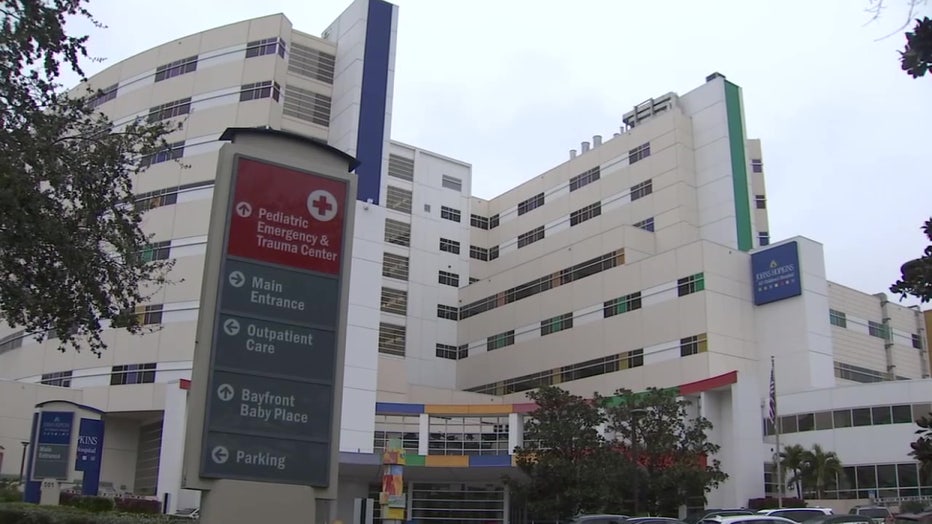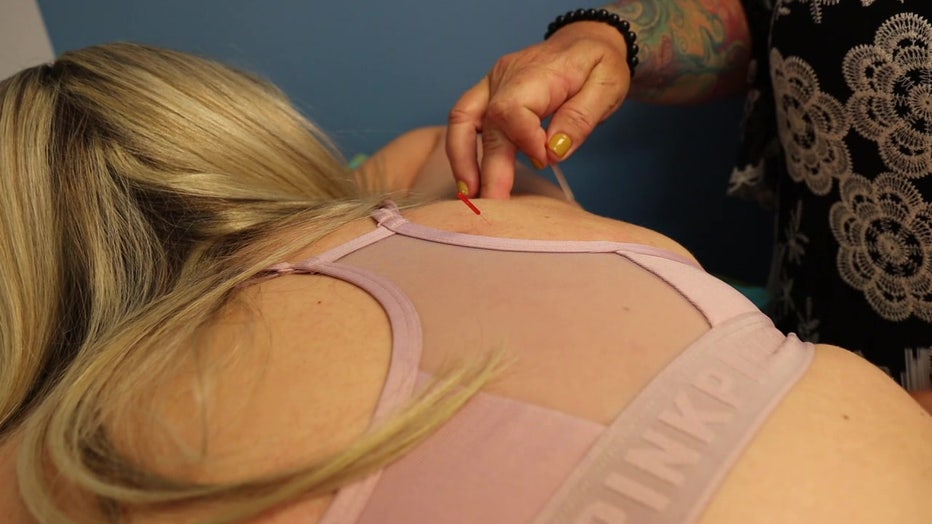Johns Hopkins All Children's adds acupuncturist to help kids with pain management
ST. PETERSBURG, Fla. - The United States is struggling with a drug-overdose epidemic fueled right now by synthetic opioids like fentanyl. As a result, hospitals are doing all they can to keep patients off pain medications, especially when it comes to children.
Johns Hopkins All Children's Hospital in St. Petersburg recently added an acupuncturist to its staff as part of its pain management clinic.
Chloe David, 17, suffered a back injury last year and found herself in a lot of pain. She said he was in physical therapy for a year and tried a lot to manage the pain until they suggested acupuncture.
"It honestly makes it feel so amazing, like it helps with the tightness a lot," David said.

It was a suggestion that David had to warm up to at first since she's afraid of needles. She's now seven months into treatment and acupuncture is working for her.
Pediatric Acupuncturist Kym Householder said being afraid of the needles is not an uncommon reaction.
"They come in thinking they are afraid of the needles, or that it’s going to hurt. As it turns out, they find the treatment very relaxing," Householder said.
READ: Florida drug czar tours Tampa General's care command center aimed at stopping drug addiction
Dr. Mohamed Rehman, the chair of the department of anesthesia and pain medicine said they wanted to provide treatment that was narcotic sparing, meaning no morphine, codeine or other narcotics.
"We owe it to the children to make them pain-free. We owe it to the children to provide them the best care that we can," said Dr. Rehman.
The hospital uses acupuncture as a complementary therapy, along with treatments like physical therapy and cognitive behavioral therapy. And it's not just needles, acupuncture includes other therapies, like cupping.

"The cupping brings everything out, and it breaks up stagnation. It increases blood flow, brings oxygen to the tissues, and promotes healing," said Householder.
She said offering treatments like these in a hospital setting, helps to clear up any misconceptions parents have.
"They find that not only convenient, but they find it trust-worthy," Householder said.
It's mostly used for pain, but the hospital can use it to treat mood disorders, gastro-intestinal problems, and sleep disorders.
"Where we can use it and help the children, we want to provide that service," said Dr. Rehman.

